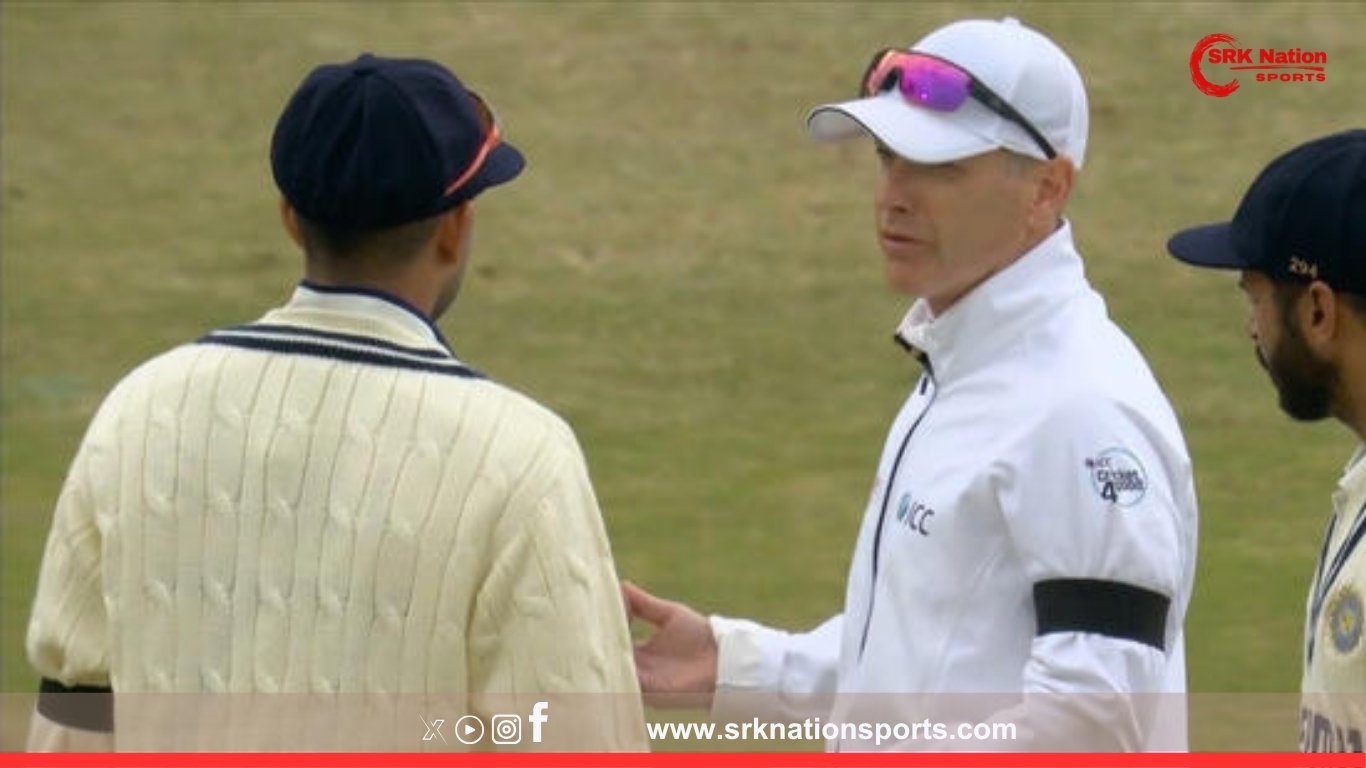In a tense moment during Day 5 of the ongoing Test match, India’s top players were visibly frustrated after their repeated requests for a ball change were denied by the on-field umpire. The incident saw opener Shubman Gill and star batsman KL Rahul express their dismay, while pacer Mohammed Siraj’s reaction of anger added further fire to an already charged atmosphere on the field.
Controversial Decision Sparks Tension
During a crucial phase of play, the Indian cricket team appealed to the umpire to replace a deteriorating ball that was affecting their bowling strategy. Despite multiple appeals from the players, the umpire stood his ground, insisting that the ball remained within acceptable limits for use. The decision, seen as a blow to India’s tactical approach on a drying pitch, led to mounting frustration among key figures in the team. Gill’s demeanour on the field reflected his disappointment, while KL Rahul, known for his calm yet competitive nature, was equally perturbed by the persistent refusal for corrective action.
Players’ Reactions Underlined Team Frustration
The palpable frustration was not limited to the batsmen alone. Mohammed Siraj, who has been instrumental with his fiery pace earlier in the match, was seen showing clear signs of anger. In a moment that resonated with the spectators, Siraj did not hold back his displeasure—his aggressive body language and vocal expressions signified that the decision by the umpire was undermining the team’s momentum. This incident comes at a critical juncture, where every ball and decision could pivot the match’s outcome, intensifying both the players’ emotions and the stakes on the field.
Impact on Match Strategy and On-Field Dynamics
The umpire’s decision has sparked a debate about the balance between strict adherence to rules and the practical demands of a high-stakes encounter. India’s management had hoped that a ball change would ensure more favorable conditions for their pacers in preserving swing and seam movement, crucial on pitches with variable conditions. Instead, the refusal appeared to tilt the dynamics in favor of the opposition, potentially affecting India’s bowling tactics during the closing phases of the game. Analysts believe that such moments of dissent, while reflecting passion, could also disrupt on-field focus if not managed properly by the team leadership.
Expert Opinions and Future Implications
Cricket pundits have weighed in on the incident, noting that while umpiring decisions are final, the cumulative effect of such contentious calls may influence a team’s morale. “When a team’s appeal is repeatedly denied, especially in conditions that clearly require intervention, it can lead to visible frustration. What the players need is to channel that energy constructively,” commented one expert. The incident is sure to be reviewed by selectors and support staff, who may later call for further clarity on how the conditions are assessed, especially when the state of the ball becomes pivotal in the strategy employed by the bowling unit.
Looking Forward in a Critical Encounter
As the match enters its final stages on Day 5, the Indian team now faces the challenge of regrouping and refocusing despite the setback. The incident serves as a reminder of the fine balance between adherence to the letter of the law and the evolving conditions on the field. With every decision carrying significant weight, the team will be hoping for a slight shift in momentum that could help them counter the setback brought about by the umpire’s resolution. Fans and followers of the match are now keenly awaiting to see how India adapts its strategy to overcome this hurdle and press on with a united front.
🔁 Share this article to stay updated on all the latest twists and turns of this thrilling Test match and follow expert analysis on on-field decisions.











